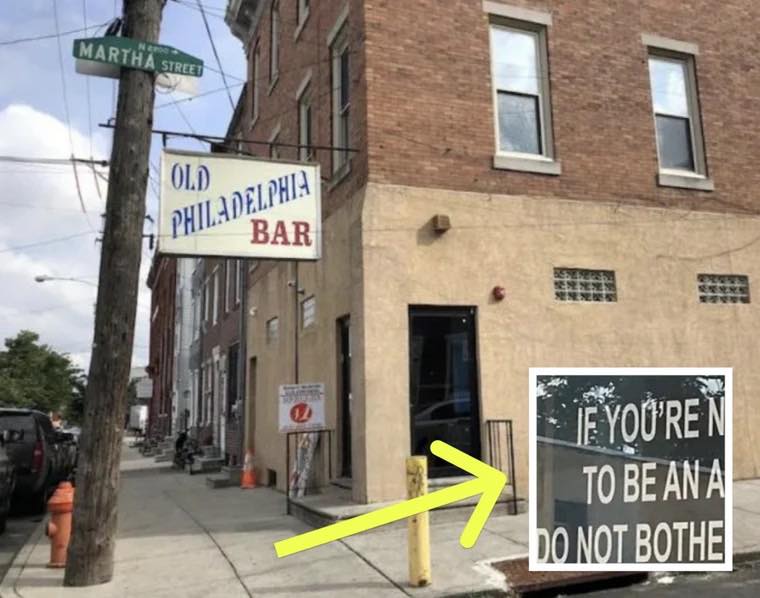“Hey everyone,” he said with a grin. “I’m a former firefighter… and a Mexican.”
A pause — then laughter, after he added, “Just kidding about that last part.”
He dropped a coin in the jukebox. The opening chords of Lee Greenwood’s “God Bless the USA” filled the room.
Within seconds, nearly every voice joined in — off-key, loud, and completely sincere:
“And I’m proud to be an American, where at least I know I’m free…”
It wasn’t staged. It wasn’t ironic. It was just… real.
For a moment, Victor understood the sign. Old Philly Bar wasn’t trying to make a statement. It was declaring an identity — one built on tradition, familiarity, and pride.
The owner, a retired veteran, later told him, “We just want folks to know what kind of place this is. We love this country. Always have.”
Regulars saw no issue with the message. But when a photo of the sign appeared on a local Facebook group, opinions split fast.
Some people applauded the bar’s “honesty.” Others said the wording felt unwelcoming, like it shut the door on anyone who didn’t fit a certain image of patriotism.
Within hours, the comment section filled with debate. Words like “freedom,” “respect,” and “belonging” popped up again and again.
For some, the sign was about pride. For others, it was about perception.
Still, business didn’t slow down. “If anything, it’s busier now,” the manager laughed. “People stop just to see the sign. Half of them stay for a drink.”
Inside, the regulars weren’t angry or defensive. They saw the bar as part of their neighborhood’s soul — a place where everyone knew each other’s names, where charity drives were held for firefighters and local families in need.
“We’re not political,” one patron said. “We’re just proud of who we are. That’s all.”
But others felt differently. “Being proud shouldn’t mean shutting people out,” said one longtime resident. “Love for your country should bring people together, not push them apart.”
The conversation soon spread beyond Philadelphia. Was the message patriotic or polarizing? Could tradition coexist with inclusion?
Meanwhile, Old Philly Bar kept doing what it always did — pouring beer, playing music, and holding onto its piece of history.
The decal still gleamed on the window as the sun went down:
“If you’re not proud to be an American, do not bother to come in.”
For some, it was offensive. For others, it was refreshing. For the owner, it was simply honest.
And in a city constantly changing, that honesty — however you saw it — made people talk, argue, laugh, and think.
Inside, the jukebox spun another classic. The crowd raised their glasses.
For three minutes and twenty seconds, there were no arguments — just voices singing together, bound by a melody older than the debate itself.

